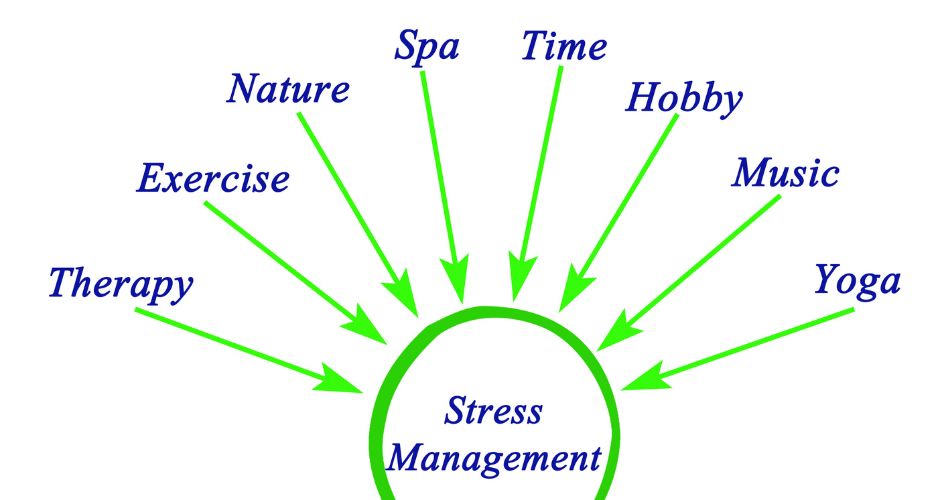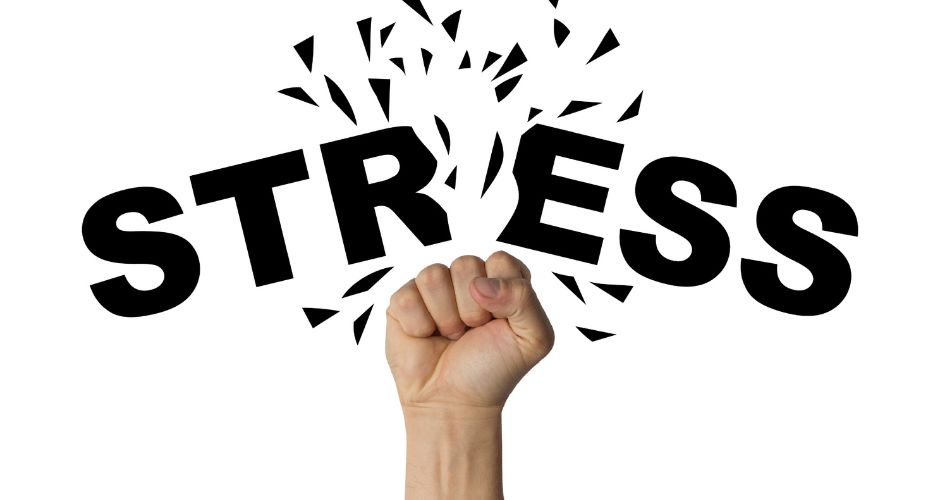Effective Stress Management Strategies

Stress is an inevitable part of life. It’s a natural response to the challenges and demands we face daily. In moderation, stress can even be motivating, pushing us to excel and meet our goals. However, when stress becomes chronic and overwhelming, it can take a toll on our physical and mental health. That’s why understanding and mastering stress management is crucial. In this comprehensive guide, we will explore effective strategies and techniques to help you combat stress and lead a more balanced and fulfilling life.
Understanding Stress
Before diving into stress management strategies, let’s start by understanding what stress is and why it matters.

Reasons for Stress: Identifying Stressors
Stress can arise from a multitude of sources and circumstances, and understanding these underlying factors is pivotal in effectively managing and mitigating stress. It’s akin to identifying the roots of a problem before addressing it. Here, we’ll delve into the various reasons that can trigger stress and emphasize the importance of recognizing these stressors.
1. Work-Related Pressures: Many people experience stress due to demands and pressures at their workplace. This might include tight deadlines, heavy workloads, challenging assignments, or conflicts with colleagues. Work-related stress can manifest in both acute (short-term) and chronic (long-term) forms.
2. Financial Difficulties: Financial stress is a common concern, often stemming from issues such as debt, unemployment, or the struggle to make ends meet. The uncertainty and strain associated with financial problems can be a significant source of stress.
3. Relationship Issues: Interpersonal relationships, whether with family, friends, or romantic partners, can be a source of emotional stress. Conflicts, misunderstandings, and strained relationships can all contribute to feelings of anxiety and tension.
4. Health Concerns: Health-related stressors are rooted in worries about one’s physical or mental well-being. Chronic illnesses, sudden injuries, or concerns about one’s health or the health of loved ones can trigger significant stress.
Importance of Identifying Stressors
Identifying the specific causes of your stress is akin to shining a spotlight on the enemy. It allows you to:
- Target the Source: Once you know what’s causing your stress, you can direct your efforts toward addressing those specific issues, whether by finding solutions, seeking help, or making necessary changes in your life.
- Develop Tailored Strategies: Armed with knowledge about your stressors, you can develop personalized stress management strategies. Different stressors may require different approaches, so this specificity is crucial.
- Enhance Self-Awareness: Identifying stressors enhances self-awareness. It helps you recognize patterns in your reactions and behaviors, empowering you to respond more effectively to stressful situations in the future.
- Reduce Generalized Anxiety: Pinpointing stressors can alleviate a sense of generalized anxiety. Knowing what you’re up against allows you to mentally prepare and, in some cases, proactively prevent stress.
Types of Stress
Stress can be categorized into two main types:
- Acute Stress: This is short-term stress that occurs in response to immediate challenges or situations. It can be beneficial as it can enhance performance and alertness.
- Chronic Stress: This is long-term or persistent stress resulting from ongoing problems or continuous exposure to stressors. Chronic stress can have detrimental effects on your well-being if not managed.
Top Stress Management Strategies

A. Identifying Stressors
- Recognizing Personal Stressors: Self-awareness is key. Take time to reflect on your experiences, emotions, and reactions in various situations. What circumstances make you feel stressed or anxious? Are there recurring patterns in your stress triggers?
B. Stress Management Techniques
- Mindfulness and Relaxation Techniques
- Deep Breathing Exercises: Simple, controlled breathing can have an immediate calming effect on your nervous system. Practice techniques like diaphragmatic breathing to reduce stress in the moment.
- Meditation and Mindfulness: Regular meditation and mindfulness practices can train your mind to stay present and reduce anxiety. Try guided meditation apps or mindfulness exercises to get started.
- Progressive Muscle Relaxation: This technique involves systematically tensing and relaxing muscle groups to release physical tension, making it effective for reducing physical stress.
- Time Management and Prioritization
- Creating a To-Do List: Start each day with a clear list of tasks and priorities to stay organized and reduce overwhelm.
- Setting Realistic Goals: Break big tasks into smaller, manageable steps to avoid setting yourself up for failure and stress.
- Delegating Tasks: Don’t hesitate to delegate when possible; involving others can lighten your workload.
- Exercise and Physical Health
- Regular Physical Activity: Exercise is a powerful stress reducer. Aim for at least 30 minutes of moderate exercise most days to release endorphins and boost your mood.
- Healthy Eating Habits: Proper nutrition supports your body in coping with stress. Focus on a balanced diet rich in fruits, vegetables, and whole grains.
- Getting Adequate Sleep: Sleep is essential for stress recovery. Create a sleep-friendly environment and stick to a consistent sleep schedule.
C. Social Support and Communication
- Building a Support System: Cultivate a network of friends and family who can offer emotional support during challenging times.
- Talking About Stress: Don’t keep your stress bottled up. Sharing your feelings with a trusted friend or therapist can provide relief and perspective.
- Seeking Professional Help: If your stress feels overwhelming, seeking professional help from a therapist or counselor can be a valuable step in managing it.
D. Avoiding Unhealthy Coping Mechanisms
- Substance Abuse: Avoid using drugs or alcohol as a way to cope with stress, as this can lead to addiction and exacerbate the problem.
- Procrastination: Procrastination can increase stress levels as deadlines approach. Develop time management skills to tackle tasks promptly.
- Negative Self-Talk: Challenge negative thoughts and self-criticism. Replace them with positive affirmations and self-compassion.

E. Stress Management at Workplace
- Setting Boundaries: Establish clear boundaries between work and personal life to prevent work-related stress from spilling over into your personal time.
- Time Management at Work: Prioritize tasks, use time efficiently, and communicate with colleagues to reduce workplace stress.
- Seeking Support from Supervisors: If work-related stressors are overwhelming, consider discussing your concerns with your supervisor or HR department to explore possible solutions.
F. Hobbies and Leisure Activities
- Pursuing Interests: Engage in hobbies and activities that you’re passionate about. These can provide a sense of purpose and fulfillment.
- Creative Outlets: Artistic and creative endeavors can be excellent outlets for stress. Whether it’s painting, writing, or playing an instrument, expressing yourself can be therapeutic.
- Relaxation and Fun: Don’t forget to have fun. Laughter and relaxation are powerful stress reducers, so enjoy life to the fullest.
G. Stress Relief Yoga
Yoga is a fantastic practice for stress relief. It combines physical postures, breathing exercises, and mindfulness to promote relaxation and reduce stress. Yoga not only helps alleviate physical tension but also calms the mind.
Conclusion
In conclusion, stress is a part of life, but with the right strategies and techniques, it can be managed effectively. By identifying your stressors, practicing mindfulness, managing your time, prioritizing physical health, seeking social support, avoiding unhealthy coping mechanisms, addressing workplace stress, and pursuing hobbies, you can build a resilient foundation for managing stress and leading a more balanced and fulfilling life. Remember that stress management is an ongoing journey, and these strategies can be adapted to your unique needs and circumstances. Start implementing them today and take the first steps toward a less stressful and more rewarding life.
FAQ’s
What is stress management?
Stress management is the practice of adopting strategies and techniques to cope with and reduce stress in order to maintain physical and mental well-being.
Why is stress management important?
Stress management is crucial because chronic stress can lead to various health issues, including anxiety, depression, cardiovascular problems, and more. Effectively managing stress promotes a healthier and more balanced life.
What are some common stressors in daily life?
Common stressors include work-related pressures, financial difficulties, relationship issues, health concerns, and environmental factors like noise or overcrowding.
What role does social support play in stress management?
Building a support system of friends and family can provide emotional support during challenging times. Talking about your stress with trusted individuals and seeking professional help when needed can also be beneficial.
What are the benefits of stress relief yoga?
Stress relief yoga combines physical postures, breathing exercises, and mindfulness to promote relaxation and reduce stress. It not only releases physical tension but also calms the mind, improving overall well-being.
Is seeking professional help necessary for stress management?
Seeking professional help from a therapist or counselor may be necessary if stress feels overwhelming and significantly affects your daily life. They can provide guidance, coping strategies, and support tailored to your specific needs.





